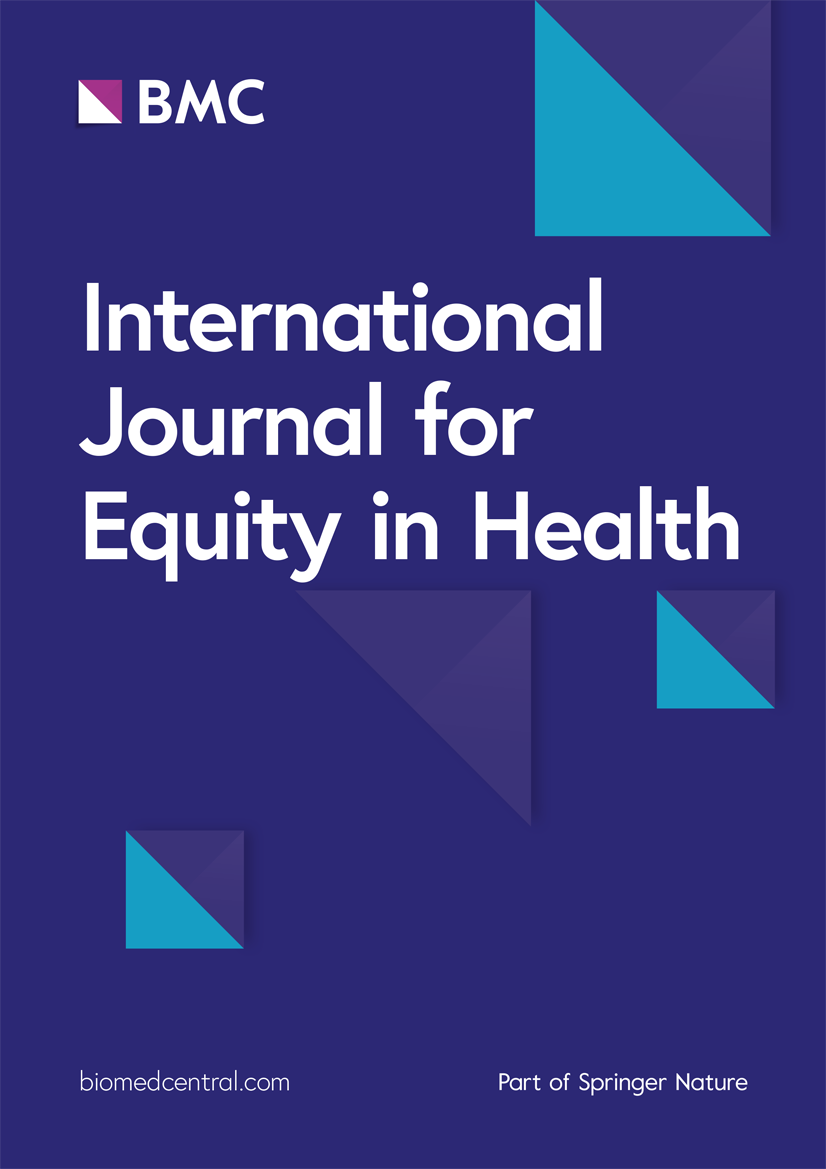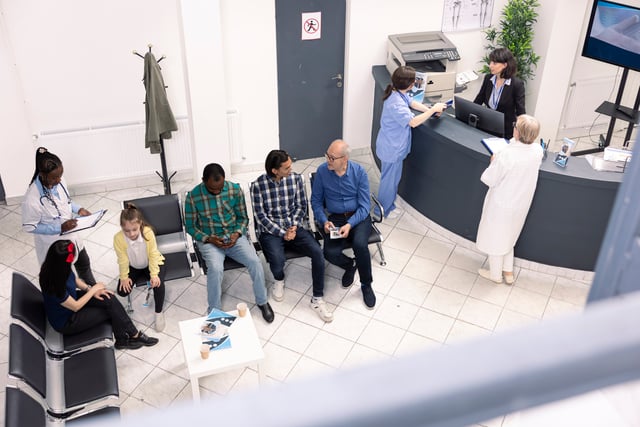Healthcare professionals’ advocacy strategies for trans-inclusive primary care: a qualitative analysis | International Journal for Equity in Health

Study design
In this study, we used a qualitative methodological framework based on institutional ethnography (IE) [31], which focuses on how everyday experiences and practices in healthcare are shaped by broader institutional processes and power structures [32,33]. IE uniquely reveals hidden mechanisms that impact patient care, professional roles, and health outcomes, offering insights that support meaningful organizational change [34].
The data presented here are part of a larger study examining the promotion of trans-inclusive healthcare in Israel. Our focus on primary care stems from its pivotal role in health maintenance [35] and from the limited research addressing health equity for the trans population in Israel. Through an empirical approach, we explored the understudied processes that shape the current state of trans-inclusive primary care and documented the strategies employed by HCPs and members of the trans community to overcome systemic barriers. This approach allowed us to better understand the complex interactions between institutional frameworks, community-driven efforts, and the challenges faced by marginalized groups in healthcare.
Data was collected from January 2021 to April 2023 and included semi-structured interviews, textual data and observations of lectures and conferences pertaining to trans healthcare. These qualitative methods were used to examine how the lack of trans-specific education influences HCPs’ practices and decision-making. In addition, the study aimed to identify the strategies HCPs used to navigate these institutional gaps when providing care for the trans population.
Setting
Israel’s universal healthcare system provides essential medical services to all citizens and permanent residents. Within this system, primary care services, including family medicine, gynaecology, and preventive medicine, are provided at community-based clinics managed by four Health Maintenance Organizations (HMOs), which typically serve as patients’ initial point of contact with the healthcare system [36].
Medical education in Israel supports this healthcare structure through a standardized six-year undergraduate program. This program is comprised of three years of pre-clinical studies focused on basic sciences and systems followed by three years of clinical training. During the clinical phase, medical students participate in rotations and clerkships in various medical specialties at affiliated hospitals and clinics. Upon completion of the undergraduate program, medical students undergo a one-year rotating internship and a residency period of several years in a chosen specialty [37]. The curriculum, which combines theoretical knowledge, clinical skills, and practical experience, is subject to regular quality assurance evaluations by the Council for Higher Education to ensure compliance with national and international standards. Despite the program’s comprehensive structure, recent evaluations highlight areas for improvement, particularly in primary care prioritization, cultural sensitivity, and early community engagement [37, 38]. After finishing their residency, HCPs continue to engage in medical education to uphold their professional competence by participating in medical conferences, training programs, specialized courses and certifications in various medical specialties [39].
Data collection
Semi-Structured interviews and participant characteristics
To provide a comprehensive understanding on the field of trans-inclusive primary care, three groups were interviewed: HCPs (n = 19), activists in Non-Governmental Organizations (NGOs) promoting trans rights, most of whom identified as trans (n = 8), and members of the trans community (n = 12). Participants were recruited through posts on social media, such as Facebook and WhatsApp, direct invitations, and snowball sampling [40].
Interviews were conducted by the first author on Zoom. They ranged from 30 to 120 min and were transcribed verbatim. The study was approved by the ethics committee of Bar-Ilan University. All participants provided written consent following explanation of the study’s aims and were offered to read and approve the transcript of their interview. Additionally, names and place of residence of participants were altered to maintain anonymity.
Different interview guides were used for each group. HCPs were asked to discuss topics such as their medical training, interactions with trans patients and strategies for overcoming institutional barriers. Trans and activist participants addressed issues such as positive and negative experiences with the primary care system and strategies for overcoming medical knowledge gaps. Participants from all groups discussed how they perceive trans-inclusive practices and suggested possible paths to promote trans-inclusive healthcare.
The term “HCPs” in this study is used to describe primary care physicians, clinical-phase medical students, and residents. Eligibility criteria required participants to be actively affiliated with the Israeli healthcare system, either as a practicing clinician or a medical student, and to have at least one encounter with a trans patient in the past five years. As detailed in Table 1, this cohort exhibited diversity in terms of expertise, age, sex, geographical location, and medical specialization. While physicians’ seniority was not specifically collected during the interviews, their experience ranged from one year to over 15 years in practice. All HCPs self-identified as cisgender. Notably, the inclusion of clinical-year students and residents ensured that all participants had direct patient care experience, providing a spectrum of clinical expertise from early-career to established practitioners.
Although not addressed directly in this paper, interviews with trans participants played a vital role in our broader study on trans-inclusive primary care. More specifically, we believe that trans voices are essential to any research and discussion pertaining to trans-related topics. Therefore, we have outlined participant demographics for the trans and activist groups in Table 2.
Textual data and observations
Textual data was used to provide additional insight into how trans-inclusive healthcare is perceived and promoted both institutionally and individually. The data, collected by the first author, included these formal and publicly available texts: discussion minutes of the Israeli parliament regarding the trans community (n = 11); position papers written by the Israeli parliament and by trans NGOs (n = 6); curricula of Israeli medical schools and advertisements for medical conventions on issues related to trans healthcare (n = 40). Due to access restrictions, we did not include school syllabi, internship and training courses available only through internal HMO and medical school websites. In addition, we reviewed discussions of the trans population in health contexts in websites and social media posts of all Israeli public healthcare institutions (n = 10), as well as public social media posts of LGBT + clinics, HCPs, and NGOs promoting trans healthcare (n = 238).
Following ethical considerations for online research [41], data collection in social media spaces was limited to publicly accessible posts and did not include discussions in closed or private groups. To ensure confidentiality, direct quotes were not used in this paper to prevent identification of individuals.
Furthermore, to obtain information on how trans healthcare was being presented and discussed in medical circles, the first author conducted participant observations in six conferences and lectures that included at least one discussion on trans health. Lectures were either recorded and transcribed verbatim or summarized in a field journal.
Data analysis
Transcripts of interviews and observations, along with textual data were analyzed using thematic analysis methods [42]. The first author carefully reviewed all data multiple times to gain familiarity. Then, using commercial software (MAXQDA 2020, VERBI GmbH, Berlin), emergent themes and topics were identified and coded through an open, iterative process involving multiple rounds of coding and refinement. After completing several interviews, the first author transcribed and analyzed the data, adjusting subsequent interview approaches and questions based on emerging themes. Similarly, textual materials were collected and analyzed at regular intervals of a few months [43]. Common themes included varying perspectives on the current state of trans-inclusive primary care, personal experiences in the field, initiatives aimed at improving healthcare access for the trans population, and strategies for communicating key issues in trans healthcare to HPCs.
link







